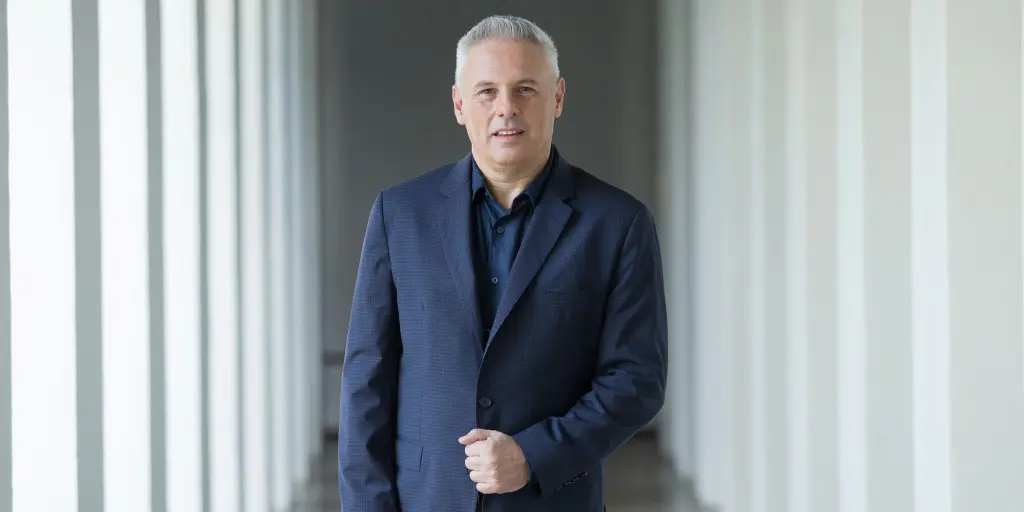Imagery courtesy of dwp.
Our exclusive chat with Scott Whittaker, group creative director of Thailand-headquartered architect and interior design firm, design worldwide partnership (dwp), explores how fulfilling both functions enables a holistic approach to hotels.
What does your role involve?
My role involves working with our global design studios to ensure we focus on delivering design excellence for every dwp customer. At dwp we have an open, collaborative culture, and a design review happens on every project at each stage. We want to both encourage our designers and provide critical feedback from our experts. I encourage and inspire our designers to deliver the best outcomes. I also love to get involved in the design process, it’s what drives most design professionals.
Could you tell us about your career to date?
My first hospitality project was over 15 years ago when we were engaged in designing the Sky bar and Sirocco Restaurants for Lebua Hotels and Resort in Bangkok. These changed the idea of what a rooftop can be and that there are many ways a hotel can generate significant income beyond traditional F+B and rooms. We won several global design awards for the projects early on, which gave us an entry to working with many global hotel brands. On many projects, we have designed both the architecture and interiors which is very different to many practices and allows us to develop truly holistic outcomes. With the consolidation of brands and operators over the past 10 years I see our challenge as producing truly authentic hotels that don’t feel generic. It’s always exciting to work with passionate hotel managers and owners with a vision for their hotel.
What key hotel projects have you worked on?
I have worked on an extensive range of hotel projects across most brands and service levels. Some of the highlights have been the W Hotels in Dubai and Abu Dhabi, Mandarin Oriental Bangkok and several very different and innovative projects such as the MGallery by Sofitel Hotels in Ho Chi Minh City and Melbourne. Recently we have worked with two global operators to build brand designs and guidelines that will be used to roll out hotels in numerous locations.
What achievement are you most proud of?
I think it is seeing team members who have grown from young designers to industry leaders. Many of our team have gone on to work with hotel operators and developers or started their own design businesses; it’s great to see people develop and grow. We have a lot of staff who have grown together with the company for more than 25 years and that’s a real driver for me. Working with great creative people is a real motivation.
What’s been the biggest challenge in your career?
We have had numerous economic crises and political waves, especially in Asia, in addition to the recent Covid-19 epidemic; they are significant challenges. However, every time we have emerged stronger – knowing we have 300 staff with families that depend on them each month is a great challenge. We embraced technology in our business and believe we are the only global firm that works in collaborative cloud-based BIM on every hotel interior and architecture project. Managing significant changes in the process of design is a real challenge and some of the best designers paradoxically don’t embrace change. We are entering the next phase where most hotels will need to merge the physical and the virtual platforms in a digital future, while retaining personal service, and this will create a new challenge for designers and design practices.
How would you sum up your design philosophy?
Beauty drives humans, and we strive for simple, elegant and timeless design. The hospitality industry is very trend-driven, and products have a short shelf life. However, some hospitality designs are timeless and don’t follow the latest Pinterest trend. Timeless designs are sustainable and significant for the planet. I think designers often focus on details that guests will never notice and don’t add value to the owner or operator. Getting the basics right is key; how annoying is it to go to a hotel and the outlets are in the wrong place, and you can’t work out how to operate the lights, TV or shower? Our greatest challenge moving forward will be designing sustainable hotels that deliver both active and passive sustainable design. We have set a target of all design staff across dwp completing LEED accreditation in 2022.
What aspects of your supplier relationships do you most value?
We can’t deliver excellent outcomes without a great supplier. Quality of goods is critical. We like suppliers who are transparent, honest, and fast to respond. Working with suppliers focused on sustainability will be necessary for the next five years and beyond. We need data from the supplier to be able to measure impacts and collaboration to ensure we achieve sustainability and energy savings.
How much of your portfolio is in the hotels segment?
Our hotel work is around 30% of our total portfolio. Still, we have noted recently that hospitality design concepts are moving into the office, health and residential sectors. Hence, we think most projects where people live, work and play will focus on lifestyle and include hospitality as an element.
How many hotel projects are in dwp’s current pipeline?
We typically have five to 10 hotels at any one time ongoing and across different stages. We have noticed a significant uptick in the past three months since travel has begun to open up, including refurbishment in all markets. In addition, Vietnam and the Kingdom of Saudi Arabia seem to be on a hotel building spree. [According to the TOPHOTELPROJECTS database, dwp is currently designing these five hotels globally: Sheraton Bahrain Hotel, Kyoto Higashiyama Banyan Tree, Crowne Plaza Dubai Business Bay, Alila Imperial House Bao Dai and Avani Cam Ranh Resort & Villas.]
Are you noticing any design trends in your upcoming hotel projects?
We approach each hotel differently, so it delivers the brand’s and owner’s design values and reflects the location and local culture. Trends we have noticed lately are much more informality in design to match changing lifestyles and technology. Restaurants are more informal; the hotel arrival experience can have many options, from self-check-in to the mobile concierge. Rooms are also more relaxed, focusing on invisible technology and freedom in how guests can use the room and the entire hotel. In each hotel, we strive to have a strong narrative for each property that resonates with the guest, so they have a sense of place and emotional attachment to the hotel. In addition, hotels are often stage sets for our business and personal lives so they all need to tell a story that can be shared.
Related Articles

For 25 years dwp has been a global architecture and design company that has completed award-winning work.
[showlayout id=510774]
Error, group does not exist! Check your syntax! (ID: 3)




